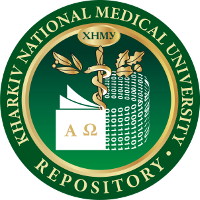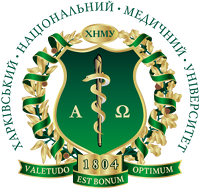Please use this identifier to cite or link to this item:
http://repo.knmu.edu.ua/handle/123456789/31955Full metadata record
| DC Field | Value | Language |
|---|---|---|
| dc.contributor.author | Uzel, Kemine | - |
| dc.contributor.author | Lakhno, Igor | - |
| dc.contributor.author | Eminli, Itibar | - |
| dc.date.accessioned | 2023-04-28T17:53:53Z | - |
| dc.date.available | 2023-04-28T17:53:53Z | - |
| dc.date.issued | 2021-08-15 | - |
| dc.identifier.citation | Uzel. K. Comparison of the effects of testosterone on pre- and posthysterectomy findings in transgender Individuals / K. Uzel, I. Lakhno, I. Eminli // International Medical Journal. – 2021. – Vol. 28, No. 4. – P. 407–410. | en_US |
| dc.identifier.issn | 2436-3294 | - |
| dc.identifier.uri | http://repo.knmu.edu.ua/handle/123456789/31955 | - |
| dc.description.abstract | Objective: This study aimed to investigate the effect of testosterone on complications and blood parameters in transgender individuals undergoing hysterectomy. Methods: This case-control study was carried out by examining the files and records in the hospital automation system of individuals who underwent laparoscopic hysterectomy and oophorectomy for a female to male transgender change in our hospital. To achieve normal male physiologic testosterone levels, transgender individuals (n = 12) were given intramuscular testosterone esters for two years before surgery. The drug dose was initially administered every three weeks, then adjusted according to the patients response. The control group (n=20) was selected from women who underwent hysterectomy and oophorectomy in the same hospital and study period. Results: When the research and control groups were compared concerning blood values, there was no significant difference in preoperative white blood cell (Z = 0.262, p = 0.795), neutrophil (Z = 0.384, p = 0.704), and lymphocyte levels (Z = 0.481, p = 0.634). However, a significant difference was found in the postoperative levels of the same measurements (Z = 2.457, p = 0.020; Z= 7.310, p = < 0.001; and Z = 6.586, p < 0.001, respectively). Regarding preoperative and postoperative measurements, leukocyte and neutrophil levels increased, while lymphocyte and hemoglobin levels decreased in both groups (p < 0.001). Besides, the study group had higher creatinine levels than the control group (Z = 3.817, p = 0.001). Conclusion: Testosterone has anti-inflammatory effects. Additionally, it substantially influences hemoglobin. Thus, testosterone can be considered as an option in selected cases. However, it's potentially harmful effect on the kidneys should always be kept in mind. | en_US |
| dc.language.iso | en | en_US |
| dc.publisher | Japan University of Health Sciences & Japan International Cultural Exchange Foundation | en_US |
| dc.subject | transgenders | en_US |
| dc.subject | testosterone | en_US |
| dc.subject | white blood cell count | en_US |
| dc.subject | creatinine | en_US |
| dc.title | Comparison of the effects of testosterone on pre- and posthysterectomy findings in transgender Individuals | en_US |
| dc.type | Article | en_US |
| Appears in Collections: | Наукові праці. Кафедра акушерства та гінекології № 3 | |
Files in This Item:
| File | Description | Size | Format | |
|---|---|---|---|---|
| 284407-1.pdf | 718,76 kB | Adobe PDF | View/Open |
Items in DSpace are protected by copyright, with all rights reserved, unless otherwise indicated.

